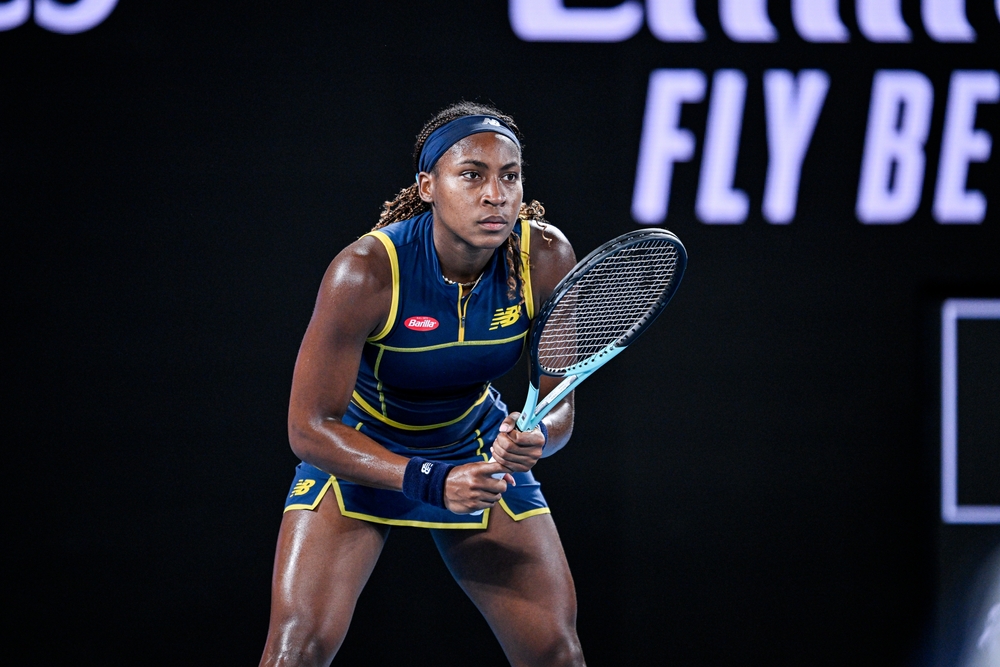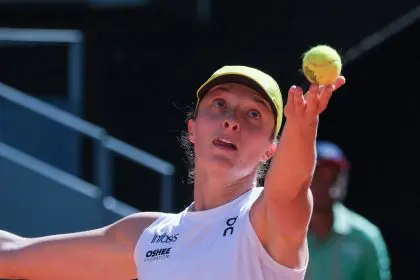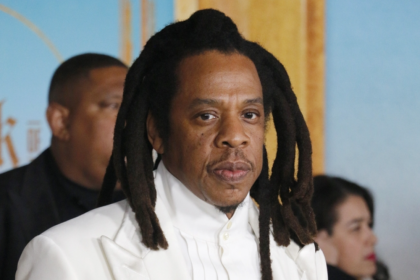This past weekend, tennis sensation Coco Gauff made headlines not only for her impressive victory at the French Open but also for the intense backlash faced by her opponent, Aryna Sabalenka. The championship match became a defining moment that extended far beyond the court, revealing the complex dynamics of professional tennis and the pressures athletes face in victory and defeat.
The match: A hard-fought victory
Coco Gauff’s journey to her second Grand Slam title demonstrated the resilience and mental fortitude that have become her trademark. Battling against challenging windy conditions that made every shot unpredictable, Gauff showcased the tactical maturity that separates champions from talented competitors.
The conditions at Roland Garros Stadium tested both players throughout the encounter. Swirling winds across the clay courts created an environment where adaptation and mental strength proved as crucial as technical skill. Gauff’s ability to adjust her game plan mid-match while maintaining her composure under pressure illustrated why she has emerged as one of tennis’s most promising young stars.
Her victory against Sabalenka represented more than just another tournament win. It solidified her position among the sport’s elite while demonstrating her capability to perform on tennis’s biggest stages. The match showcased Gauff’s evolution from teenage prodigy to established champion, with her serve reliability and return game particularly impressive throughout the contest.
Sabalenka’s controversial comments
The aftermath of the match generated as much discussion as the competition itself when Sabalenka addressed the media with remarks that immediately divided the tennis community. Instead of acknowledging her opponent’s exceptional performance, Sabalenka focused primarily on her own shortcomings during the final.
Sabalenka characterized her performance as the worst final she had ever played, suggesting that Gauff won primarily because of errors rather than superior tennis. Her assessment implied that the outcome resulted more from her mistakes than from her opponent’s skill and preparation.
The Belarusian player extended her comments to include speculation about alternative scenarios, particularly suggesting that Iga Swiatek, whom she had defeated in the semifinals, would have secured victory in the final. She expressed that Swiatek would have emerged triumphant and that this possibility caused her additional pain.
These remarks reflected a troubling pattern where athletes struggle to credit opponents for their achievements, instead attributing defeats to personal failings. The comments resonated throughout the tennis world, sparking intense debates about sportsmanship expectations and professional conduct.
Fan reactions: Sore loser or honest assessment?
The tennis community’s response to Sabalenka’s comments was swift and largely critical. Social media platforms became battlegrounds where fans, former players, and commentators debated the appropriateness of her remarks and their implications for professional tennis.
Many observers labeled Sabalenka’s behavior as poor sportsmanship, arguing that her comments diminished Gauff’s well-deserved victory. The criticism highlighted broader conversations about respect in competitive sports and the responsibility athletes bear as role models.
The backlash extended beyond casual fans to include tennis professionals and analysts who emphasized how defeats provide opportunities to demonstrate character and grace. The incident became a teaching moment about the importance of acknowledging opponents’ excellence, particularly in high-pressure championship situations.
Former players contributed their perspectives, noting how gracious defeats often earn more respect than victories accompanied by controversial statements. The discourse revealed the tennis community’s expectations for professional conduct and the scrutiny facing modern athletes.
Gauff’s graceful response
Amid the swirling controversy, Gauff maintained her characteristic composure and responded to the criticism with remarkable maturity. Her reaction demonstrated the poise that has defined her young career and established her as a respected figure in professional tennis.
Gauff respectfully disagreed with Sabalenka’s assessment, pointing out that she stood as the tournament champion and that her victory was legitimate and earned. Her response balanced firmness with diplomacy, defending her accomplishment without escalating tensions or engaging in public disputes.
The American champion further emphasized her proven track record against elite competition, including her previous victories over top-ranked players. She highlighted her straight-sets victory over Swiatek in their most recent encounter, demonstrating her ability to defeat the world’s best players consistently.
Gauff’s handling of the situation provided a masterclass in professional conduct under difficult circumstances. Rather than allowing the controversy to overshadow her achievement, she redirected attention to her tennis accomplishments and maintained focus on her future goals.
The bigger picture: Sportsmanship in tennis
This incident illuminated important questions about sportsmanship in professional tennis and the broader expectations placed on athletes, particularly women competing at the highest levels. The scrutiny facing female athletes often exceeds that directed toward their male counterparts, making incidents like this particularly significant.
The controversy occurred within the context of women’s tennis experiencing unprecedented depth and competitiveness. Multiple players now possess the capability to win major championships, creating intense pressure and heightened emotions when opportunities slip away.
Modern athletes operate under constant observation, where every public statement faces immediate analysis and judgment. Professional tennis, with its individual nature and global reach, particularly amplifies these dynamics and creates additional pressure for appropriate conduct.
The incident also highlighted the ongoing generational transition in tennis, with younger players like Gauff consistently challenging established stars while maintaining professional standards. Her grace under pressure, both during competition and its aftermath, exemplifies the qualities that separate true champions from merely talented players.
Celebrating achievements and moving forward
Gauff’s victory at the French Open represents a significant milestone in her burgeoning career and deserves recognition as a remarkable achievement. Her triumph on the clay courts of Roland Garros, historically challenging for American players, demonstrates her versatility and comprehensive skill set.
The championship positions Gauff among tennis’s elite competitors while she remains in the early stages of what promises to be an exceptional career. Her combination of athletic ability, mental toughness, and professional conduct suggests sustained success across multiple surfaces and tournament formats.
While Sabalenka’s comments may have temporarily overshadowed the match for some observers, they ultimately opened important discussions about respect and acknowledgment in competitive sports. The incident serves as a reminder of the importance of supporting athletes who demonstrate resilience, hard work, and exemplary sportsmanship.
Gauff’s French Open victory, despite the surrounding drama, ultimately belongs to her and represents another chapter in her remarkable journey from teenage sensation to Grand Slam champion. Her ability to rise above controversy while maintaining focus on her tennis achievements provides inspiration for countless young athletes and reinforces the values that make sports compelling and meaningful.













